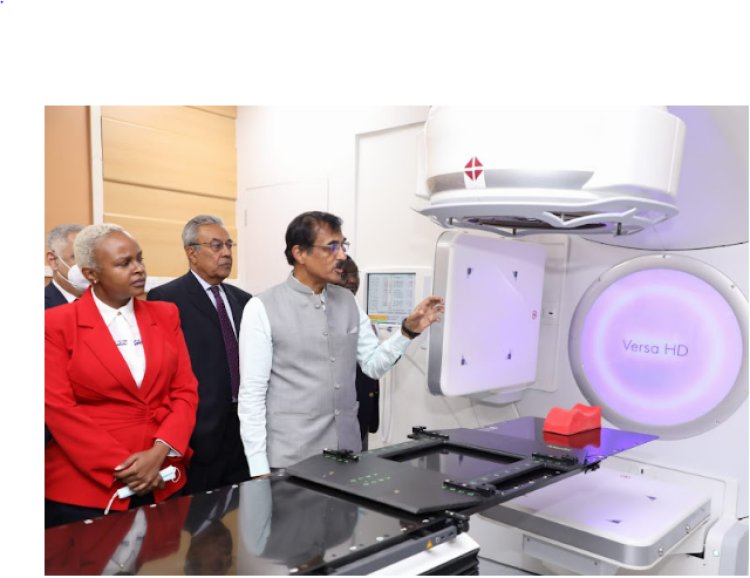Kenya Acquires An Advanced Cancer Therapy Machine
A machine for cancer diagnosis and treatment was released in the country, giving the fight against cancer a boost.

The Elekta versa HD system machine is a powerful linear accelerator that can treat a wide range of malignancies while also improving patient care.
Mercy Mwangangi, the Health Chief Administrative Secretary (CAS), said Elekta's Versa will let oncologists to target tumors more precisely while protecting essential surrounding structures, increasing patient outcomes and lowering radiotherapy treatment adverse effects.
"This equipment will be critical in bridging the gap between the quality and accessibility of proper cancer care. We are confident that the best treatment outcomes would be achieved as a result of this program," Mwangangi added.
She was speaking at the HCG CCK cancer center in Nairobi for the debut of Elekta's versa HD system for advanced cancer therapy.
According to Mwangangi, the Cancer Centre was the first hospital in Sub-Saharan Africa to employ cutting-edge technologies.
The system will cut the average patient treatment time in half, from five to seven weeks for regular treatments to just one week.
This will allow patients who are being treated with hypofractionated regimens to have fewer negative effects.
The gadget, according to BS Ajaikumar, chairman of Healthcare Global Enterprises Limited, can treat up to 150 patients in a single day.
"Patients who travel outside for this specialist treatment on a yearly basis would no longer need to travel since the sophisticated treatment would be available in Kenya," he said.
Patients who use the equipment would have access to the greatest outpatient oncology care available in Kenya and the region, according to him.
Cancer, after infectious diseases and cardiovascular diseases, is the third biggest cause of death in Kenya, accounting for 8% of overall mortality, with 42,000 cases and 27, 000 deaths per year, according to Mwangangi.
She claims that the majority of cancer patients are detected late in the disease process, when treatment outcomes are poor, and that thousands of people die from illnesses that are typically treatable.
























